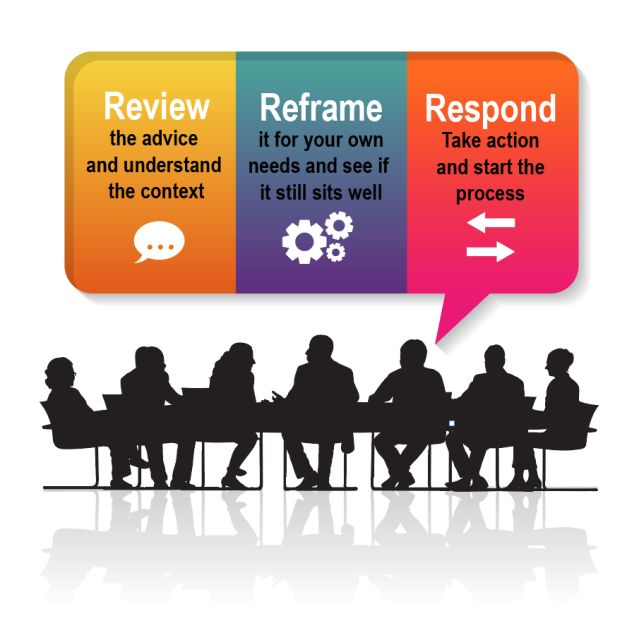Decision-Making
How to Listen to Advice and Act Accordingly
Ask for advice but take responsibility for your actions
Posted January 31, 2023 Reviewed by Hara Estroff Marano
Key points
- You are responsible for the decisions you make but that doesn't stop you taking advice and reflecting on other people's perspectives first.
- People will have their own agenda when they offer advice. It's important to be objective and weight up different views on their merits.
- Challenge the assumptions made in the advice you receive and ensure it's relevant to your own circumstances.
- Listen to your intuition as well as to other people.

Billy Schwer was a World Champion boxer who let his life go off the rails after losing his crown. It took a couple of years but Billy took responsibility for getting back on track and taking the action needed to turn things around.
Billy faced two fights. The first as the boxer, standing alone in the ring, with his corner shouting directions while he got jabbed time and again in the face. This fight provides a striking metaphor for his second battle, overcoming the challenges he faced adapting to life after his boxing career ended.
In both cases, the team Billy had in his corner were important but he was the one who was sticking their chin out and trying to avoid getting knocked down.
“A corner can win you the fight,” Billy said. “When they look at the fight from outside the ring, they can see opportunities you cannot see. But then, when you are in such an intense environment, it is very difficult to implement what they see and take action. You are the only person you can rely on. You have got a team around you but you go in there and you’re fighting on your own.”
Review, Reframe and Respond

Fortunately, many of the issues we face in life and work give us a lot more time to react than an elite boxer will enjoy in the ring. In most cases, we have the luxury of seeking support and then reflecting on it before deciding on what action we need to take.
We need to go through three stages when taking advice on board and working out how to process and act on it.
First of all, we need to review the information we have been given. Depending on the nature of the challenge, you may want to seek advice from a range of different people with different perspectives. The more complex the issue, the more you need to understand all of the potential ramifications.
If, for example, you are making major public policy decisions, you wouldn’t simply ask for the advice of a mentor or friend. You’ll need to invite opinions from a range of people who have an interest in the outcome of the policy discussion and try to ensure that all possibilities are mapped before finalising your way forward.
Other decisions, such as whether to put yourself forward for a promotion or where to go on holiday, will probably need a lower degree of scrutiny and fewer conversations before you make a decision.
Take on board what other people say and, if you can, listen objectively. The more objective you can be with different perspectives, the better you will be able to weigh up each argument on its individual merits and come to a balanced and informed conclusion.
Remember that in many circumstances, both professional and personal, people will have their own agenda and beliefs that influence their counsel.
Once we have reviewed the advice that we have received, we then need to reframe it, challenging the assumptions we have made and testing different scenarios. How important is the likely action in the grand scheme of things and how will you benefit from taking it?
When filtering advice, ask yourself how right the advice sounds to you and how seamlessly you can implement it. What are the likely repercussions? Again, remember that it’s you who is taking final responsibility, so you need to be clear in your mind about what the likely outcomes of that course of action will be.
It’s not as simple as taking in every different opinion and then weighing up which side of the debate is more popular. As the person taking responsibility, you need to be comfortable with the final decision.
Listen to your gut. How do you feel about the final decision? Deep down you know what you most want to do and your intuition is designed to guide you to the decision that you feel more comfortable with. There’s a lot of noise designed to drown out that instinct and we need to tune in to our real feelings and help them to inform our final choice, alongside the advice we have taken.
Understand the perspective from which advice was offered. If it’s based on the experience of the person offering solutions, how similar were the circumstances they faced to yours? If the context was completely different, then how effective will that same action be if you applied it?
Listen to and review the advice, see it from the lens of your own circumstances and preferences, then make a decision that is appropriate to you. You may take on board the suggestions of your network wholly, you make take elements and adapt the advice to suit your unique issue, or you may discard them completely and choose another route.
Finally, once you have weighed up and contextualised the advice from your corner, you need to respond and take action. You need to throw some punches of your own.
During a fight, the bell rings every three minutes to give the boxers a rest and to allow their respective corners to patch them up and remind them of the game plan, as well as to adapt that plan to changes in circumstances, such as a cut above the eye or a broken nose.
Similarly, you don’t need to be left alone once you have taken advice from your own corner. You can agree on a game plan, go back between rounds for your team to hold you accountable and constantly review your approach depending on your progress.
References
Lopata, Andy (2020). Just Ask, Why Seeking Support is your Greatest Strength. Panoma Press.




